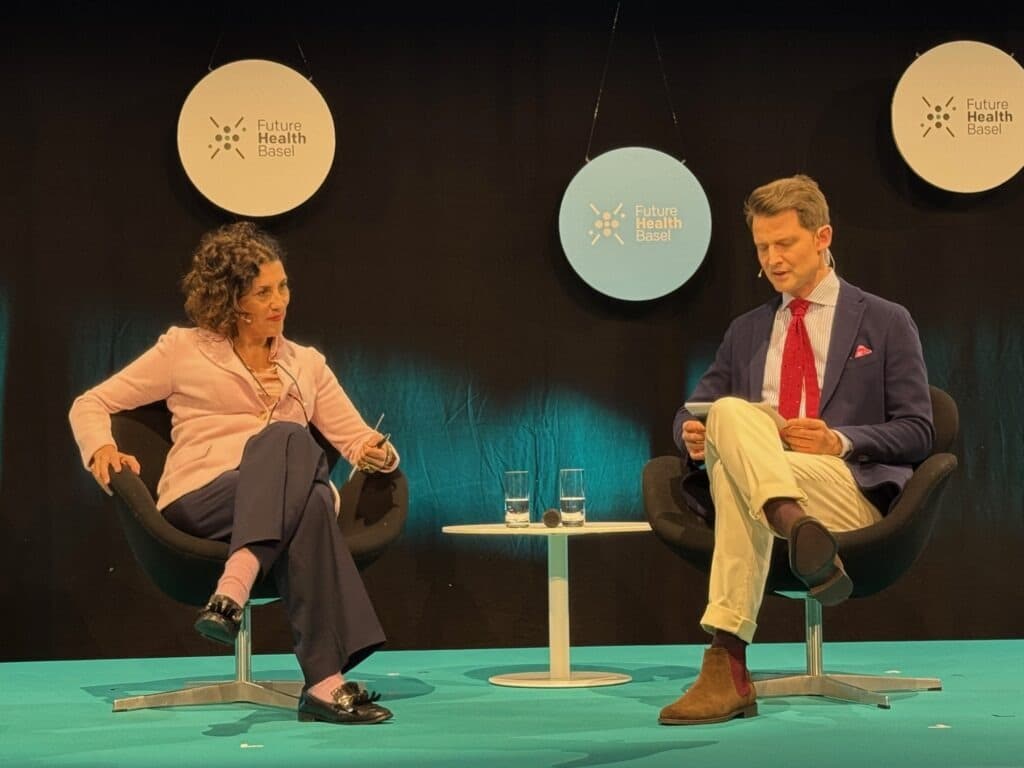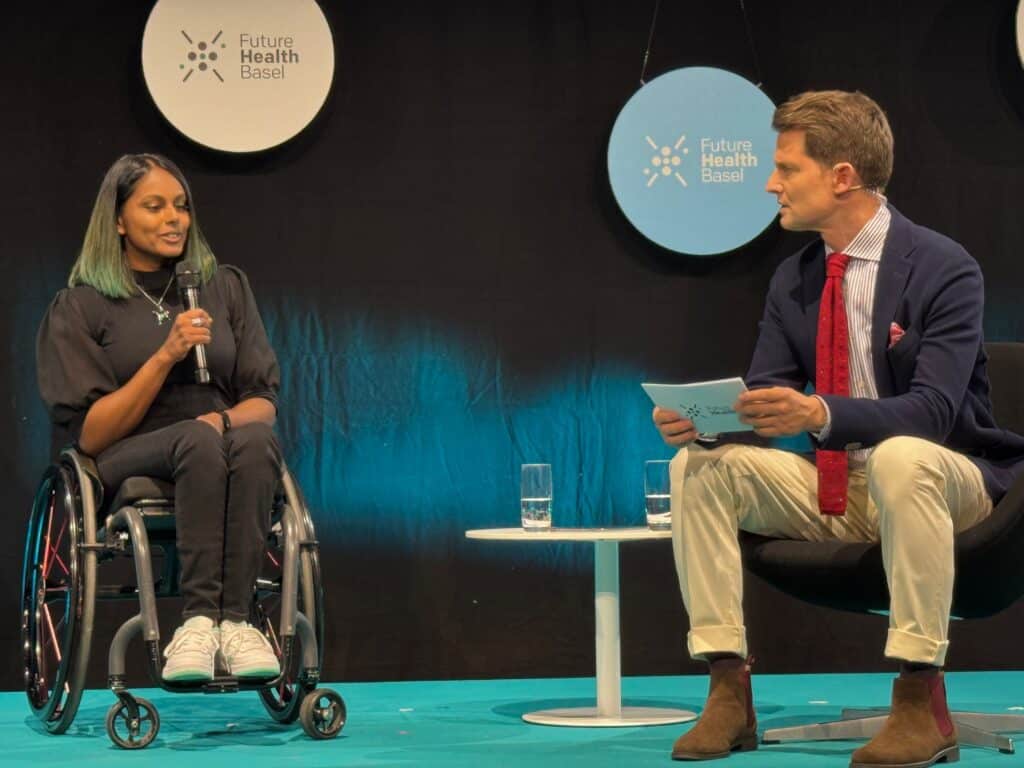During the FutureHealth Basel 2025 conference, a wide range of topics were presented, from longevity with AI, mental health, the future of the healthcare system. The importance of gender-specific differences in medicine was also discussed. Prof. Dr. Carolin Lerchenmüller, head of the Department of Gender Medicine at the University of Zurich, works in the cardiology department of the University Hospital in Zurich and gave examples of the differences.
When it comes to the symptoms of a heart attack, many still think of the classic male image: chest pain, cold sweat, dramatic collapse. But women often experience heart attacks differently: more diffuse symptoms, back or jaw pain, shortness of breath. Karolin Lerchenmüller, Professor of Gender Medicine, explained: ‘We know about these differences – but they are rarely taken into account in patient care.’
A system with a male perspective
Around 75 per cent of all preclinical studies are still based on male animals and cells. Women are also underrepresented in clinical studies. The consequence: medications often have a different effect on them, side effects are more frequent – but are not adequately recorded. Gender medicine means: recognising, understanding and taking into account biological and social gender differences. And it affects not only women, but also men, in whom, for example, depression is often not recognised.
Cell biology is not neutral
The X chromosome carries many immune functions – women with two X chromosomes have a more robust immune system, but also a greater tendency towards autoimmune diseases. These findings are crucial for the development of therapies. The processing of medication also differs significantly: from absorption to excretion. Nevertheless, dosages are often not adjusted.



The example of cardiology: when the same treatment is not fair
Gender bias is particularly evident in heart medicine. Lechner-Müller: ‘Women only need half the dose of certain medications to achieve the same effect – but they are given the same dose as men.’ This increases the risk of side effects. At the same time, many risk factors such as high blood pressure or diabetes are associated with a higher risk of complications in women. Yet they are often treated later or with less intensity.
More data, more diversity, more justice
Gender medicine demands nothing less than a paradigm shift: the 70-kilogram man can no longer be the norm. What is needed are gender-specific analyses, more diverse study groups and an awareness in research and practice that equal treatment is not automatically fair.
From niche to necessity
Just a few years ago, gender medicine was still considered a fringe issue. Today, it is clear that ignoring it can lead to misdiagnosis, side effects and inefficiency. The good news is that interest in gender medicine is growing, more and more universities are setting up chairs in the field, and awareness is increasing.
The way forward is clear: medicine must learn to differentiate
It is not about creating new categories, but about understanding differences. Whether in pain therapy, oncology or mental illness: gender plays a role. And it is time that we began to do justice to this role. Because only those who recognise differences can create equality.
Binci Heeb
Also read:





